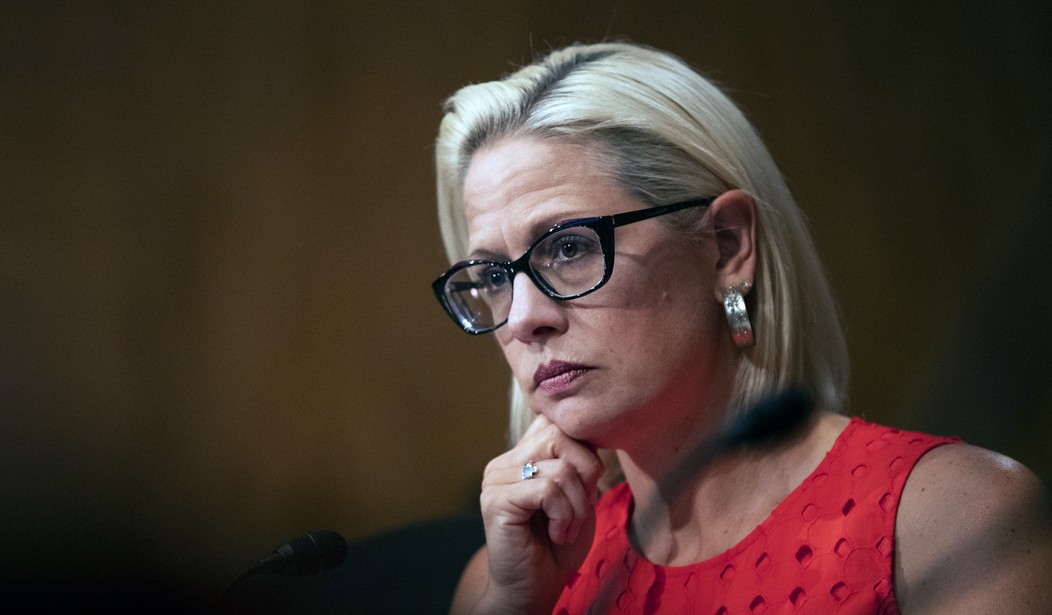A new year is here and Congress will no doubt be in a hurry to pass pivotal legislation in the early months of the year. Much of the summer and fall will be spent campaigning for the November elections. And, in the run-up to campaign season, congressional leadership will do everything in their power to protect vulnerable members from making tough votes. The window to get anything of significance done is already narrowing.
For congressional Democrats – who hold slim majorities in both chambers of Congress, as well as the White House – the sting of defeat is still fresh from their inability to pass the Build Back Better Act in 2021. The pressure will be even greater to deliver a victory for the party before Americans go to the polls in November. Unfortunately, it seems the Democrats’ preferred method to alleviate that pressure will be to revisit the elimination of the legislative filibuster in the Senate.
The filibuster has been around since 1798 when it was inadvertently created by then-Vice President Aaron Burr. Burr held that Senators should not hold separate votes on ending debate, thus it became theoretically possible to prevent votes on legislative initiatives by extending debate for as long as possible.
Naturally, Burr’s nemesis – and noted advocate for big centralized government – Alexander Hamilton opposed the move. He also opposed any supermajority requirement to advance legislation and it was one of his objections to the Articles of Confederation. According to Hamilton in Federalist 22, the real purpose of such requirements “is to embarrass the administration [and] to destroy the energy of the government… It is often, by the impracticability of obtaining the necessary number of votes, kept in a state of inaction.”
Hamilton’s objections are precisely why mechanisms like the legislative filibuster are so crucial today. Most of the framers understood an overactive federal government to be a threat to American liberty. The nation was structured in such a way so as to prevent the beliefs of the minority from being subjected to the tyranny of the majority. Only measures thoughtfully considered and obtaining some consensus ought to be passed into law.
Recommended
The necessity of this view is in action today. When [both] political parties attempt to avert the filibuster/cloture process the Senate has in place today is when they are most boldly partisan. Most recently, congressional Democrats, with only 50 seats in the Senate tried to pass a multi-trillion dollar spending bill with a number of radical provisions, all amidst the backdrop of record setting national debt. It was by the grace of Sens. Joe Manchin (D-W.Va.) and Kyrsten Sinema (D-Ariz.) that the Build Back Better Act is not law today, wreaking havoc on taxpayers and the economy.
For decades, senators in both major parties sought to defend the rights of the minority party by upholding the filibuster and the right to extended debate. As recently as 2005, this included the man now leading the charge to abolish the filibuster, Senate Majority Leader Chuck Schumer (D-N.Y.). In 2005, Schumer said of efforts to abolish the filibuster:
“The ideologues in the Senate want to turn what the Founding Fathers called ‘the cooling saucer of democracy’ into the rubber stamp of dictatorship. We will not let them. They want – because they can’t get their way on every judge – to change the rules midstream, to wash away 200 years of history. They want to turn this country into a banana republic, where if you don’t get your way, you change the rules. It would be a doomsday for democracy if we do.”
Schumer’s words could very easily be applied today. His Senate Democratic caucus cannot get its way on social welfare spending or election reform legislation. Because of that, they want to change the rules midstream, wiping away what has been Senate precedent since 1798. They want to turn the Senate into an institution where, if you don’t get your way, you change the rules.
Thankfully, it seems Manchin and Sinema are once again holding the line against a broader partisan incursion. There is no doubt Schumer and the rest of party leadership will turn the screws harder in the coming weeks. It is vital for senators of all stripes to vocally defend the filibuster, as many of them have for the entirety of their Senate careers.

























Join the conversation as a VIP Member